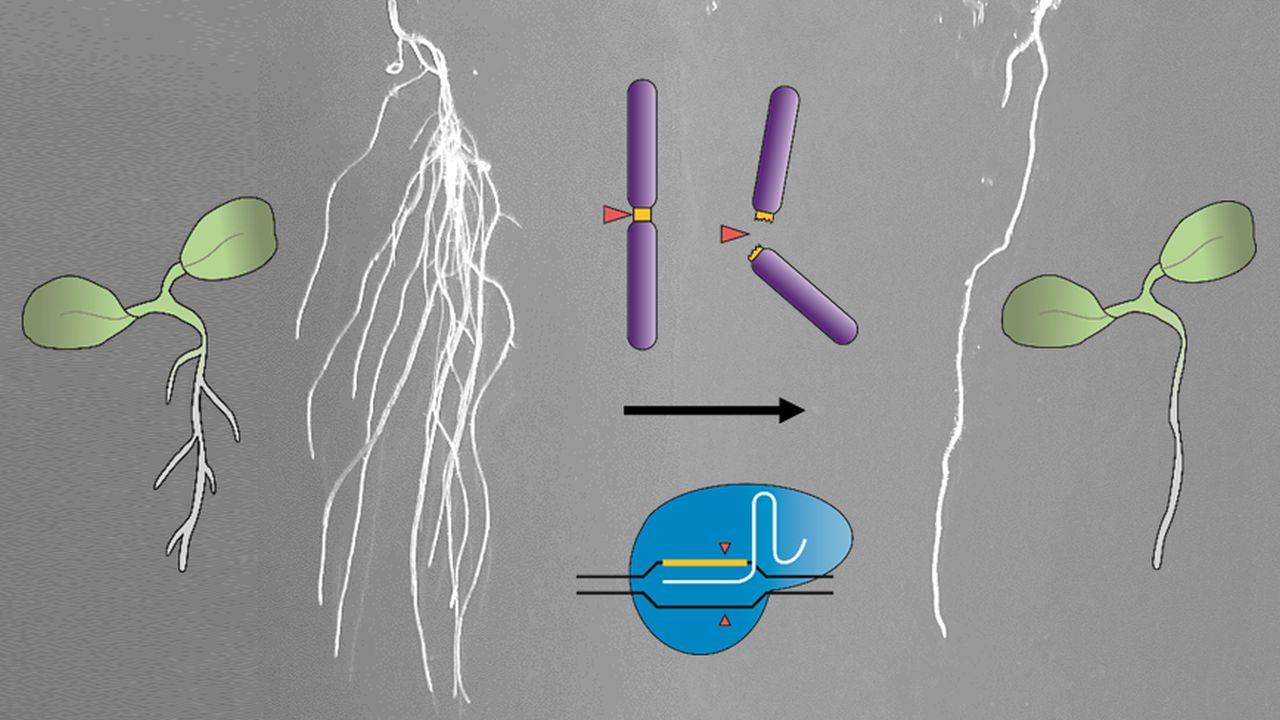
CRISPR-Kill Prevents Formation of Specific Organs During Plant Development
April 6, 2022| |
Karlsruhe Institute of Technology (KIT) scientists developed CRISPR-Kill, a new technique to remove the complete DNA of certain cell types to prevent the formation of specific organs during plant development. This technique is presented in Nature Communications.
The research team, led by Prof. Holger Puchta, a molecular biologist at KIT and one of the co-developers of CRISPR-Cas for plants, developed CRISPR-Kill which induces multiple cuts in the genome. CRISPR-Cas has been useful in targeting one location and cuts once or twice to modify a gene or chromosome. “Now, we have reprogrammed our molecular scissors. They no longer address the genomic DNA only once, but aim in the respective cell type for a sequence that is encountered often in the genome and that is essential for the survival of the cell. In this way, many cuts are induced at the same time - too many for the cell to repair them. The cell will die,” Prof. Puchta explains.
They tested the technique on secondary roots and petals of Arabidopsis. After the cells were eliminated, CRISPR-Kill plants did not form any petals or secondary roots, while the control plants showed normal growth.
Know more from KIT and Nature Communications.
| |
You might also like:
- Pocket K No. 54: Plant Breeding Innovation: CRISPR-Cas9
- Cas-CLOVER, an Alternative to CRISPR-Cas9
- Scientist Introduces CRISPR 3.0 System for Highly Efficient Gene Activation in Plants
Biotech Updates is a weekly newsletter of ISAAA, a not-for-profit organization. It is distributed for free to over 22,000 subscribers worldwide to inform them about the key developments in biosciences, especially in biotechnology. Your support will help us in our mission to feed the world with knowledge. You can help by donating as little as $10.
-
See more articles:
-
Gene Editing Supplement (April 6, 2022)
-
Research and Tools
- Effective CRISPR-Cas9 Method for Citrus Plants Developed
- CRISPR-Kill Prevents Formation of Specific Organs During Plant Development
- Gene Editing Offers Hope to Endangered African Banana Industry
- Using CRISPR, US Firm Near to Creating Hypoallergenic Cats
- Experts Broaden Target Range of CRISPR-Cas Systems
-
Policy Considerations and Approvals
- India Exempts Genome-Edited Plants from Biosafety Assessment
-
Read the latest: - Biotech Updates (February 11, 2026)
- Gene Editing Supplement (January 28, 2026)
- Gene Drive Supplement (February 22, 2023)
-
Subscribe to BU: - Share
- Tweet

